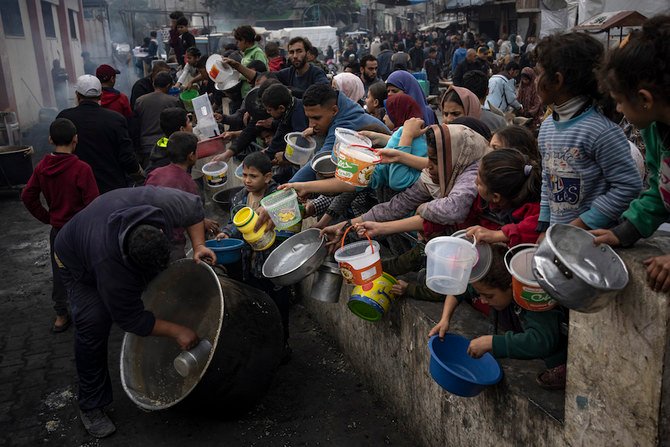Malnutrition heightens susceptibility to severe illness and impedes recovery from diseases, while also stunting overall growth and development, particularly in children.
The Gaza Strip is on the brink of a humanitarian catastrophe, as warned by the latest analysis from the Integrated Food Security Phase Classification (IPC) partnership released today. The report indicates that northern Gaza is facing imminent famine, with the rest of the Strip also at grave risk.
WHO Director-General Dr. Tedros Adhanom Ghebreyesus commented on the dire situation, stating, “Before this crisis, there was enough food in Gaza to feed the population. Malnutrition was a rare occurrence. Now, people are dying, and many more are sick.” Over a million individuals in Gaza are expected to confront catastrophic hunger if significant increases in food supplies are not urgently facilitated.
Recent data underscores the severity of the crisis, with acute malnutrition among children under 5 years of age skyrocketing from 0.8% to between 12.4% and 16.5% in the northern governorates as of February.
The consequences of the current situation extend beyond immediate hunger, with long-term health impacts looming. Malnutrition heightens susceptibility to severe illness and impedes recovery from diseases, while also stunting overall growth and development, particularly in children.
Despite efforts by WHO and its partners to deliver essential supplies, including medicines, fuel, and food, missions are often impeded by logistical challenges and access restrictions. The ongoing conflict exacerbates these difficulties, with damaged infrastructure hindering delivery efforts.
WHO’s initiatives include supporting nutrition stabilization centers to treat children with severe acute malnutrition, as well as providing medical supplies and training for healthcare personnel. However, additional centers and expanded support are urgently required to address the escalating crisis effectively.
International appeals for Israel to facilitate the entry and distribution of humanitarian aid, including food, water, and medical supplies, have been reiterated by WHO and other UN agencies. While recent attempts to deliver aid by air and sea are acknowledged, only the expansion of land crossings can enable large-scale deliveries to avert famine.
As the occupying force, Israel bears a legal obligation under international law to allow the passage of humanitarian supplies. The urgency of the situation demands immediate action to prevent further suffering and loss of life in Gaza.
The looming famine in Gaza poses not only immediate threats to lives but also long-term health consequences, particularly for vulnerable populations such as children. Urgent and concerted efforts are imperative to avert this humanitarian catastrophe.
